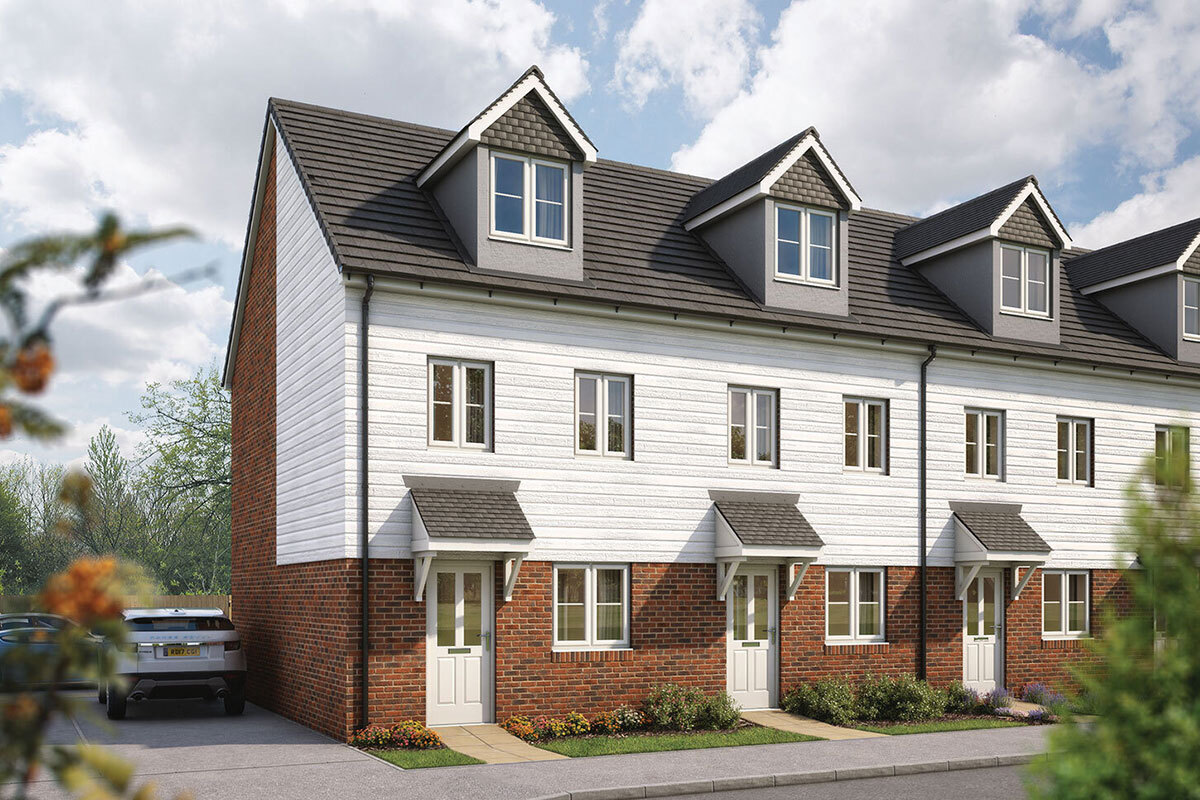Partnerships ‘critical’ going forward to obtain land and meet housing delivery
Strategic partnerships between house builders and housing associations are going to be “critical” for the sector to obtain land and meet delivery targets in the current economic climate.
A number of sector experts have told Inside Housing that the move to new build investment partnerships and large-scale stock transfers is the direction the market has been heading into for some time.
This is because of higher interest rates and rising build costs, alongside a refocus on existing stock and fire and building safety remediation work.
Industry professionals were commenting after a number of high-profile announcements in the sector in this area in 2023.
In November, Vistry Group signed an £819m partnership deal with two Blackstone-backed providers that will acquire 2,915 homes.
Leaf Living and Sage Homes, which are both also backed by Regis Group, put pen to paper on a deal to acquire the homes that are located on plots across 70 of Vistry’s developments.
Mark Sater, chief executive of Sage Homes, said: “Partnerships are critical if we are to meaningfully increase the supply of affordable housing across the country.
“Over our six-year history, we are proud of what Sage has delivered in partnership with Homes England, over 220 councils, the GLA [Greater London Authority], other housing associations and developers. We remain committed to the partnership model and look forward to continuing to work to address the shortage of housing across social rent, affordable rent and shared ownership.”
It was the first such deal since Vistry announced it will merge its housebuilding arm with its partnership business to focus solely on mixed-tenure affordable housing.
Triya Maicha, a partner at Devonshires, said: “The market has slowly been heading in this direction for some time, but this is undoubtedly one of the biggest ever new build investment partnerships that we have seen in the sector to date, with the purchase of just under 3,000 homes by Sage Homes and Leaf Living.
“The wider economic climate, including higher than normal interest rates and increased costs, has dampened appetite for private sales to both occupiers and small-scale investors, yet new build dwellings have been built or committed to be built, and need selling.
“It is no surprise that house builders are exploring alternative avenues in order to shift stock at scale, which not only helps secure cash flow for house builders but also a healthy pipeline for affordable housing and single-family rental homes over the coming years.”
Ms Maicha described the Vistry deal as “very exciting and groundbreaking” and hoped to see more of these sort of partnerships going forward.
Sector sources have also told Inside Housing to expect a lot more of the type of strategic investment partnership that was announced by Sovereign Network Group (SNG) and house builder Hill Group.
The landlord’s coming-together with the house builder will be called Sovereign Hill Partnership (SHP) and will be focused on regenerating urban brownfield sites, in an equal 50:50 limited liability partnership.
SNG, which has plans to build 25,000 homes over the next 10 years and a long-term £8.6bn investment programme to met its net zero goals, said the collaboration will be “key to delivering on these ambitions” and is a “major step in bringing together the necessary capacity, capability and co-investment”.
Although one development director at a large landlord said that while it is undeniable that these partnerships can help towards the delivery, there needs to be a more equitable share of risk that persists across turbulent market conditions.
Gerraint Oakley, executive director for growth and development at Platform Housing Group, said: “There’s no doubt that big partnerships in our sector can go a long way towards helping with delivery and given the pressure to provide more affordable housing is greater than ever, it’s healthy to see more of them being formed.
“The result can be that we are in a position to provide a diverse tenure offering that is able to adapt to changing markets. The kind of in-house support you get from large developers can also help with increasing the possibilities for delivery.
“From a housing association’s point of view, there’s a lot to bring to the table, too. Accessible government funding and our relationships with local authorities, which can help when it comes to working through planning negotiations.
“Then there’s the link that association’s make with their communities that the large developers can use to deliver on their social value requirements.”
For Mr Oakley, there was some concern about finding the right balance between each party once the deal has been struck.
He added: “There will always be the need to appease shareholders on one side, while both parties have an eye on achieving their targets. What I think associations will be looking for more in the future are true partnerships where there is an equitable share of pain and gain and, crucially, one that persists across turbulent market conditions.
“These kind of stronger, equal, longer lasting partnerships have the power to unlock real opportunities in obtaining land, negotiating planning and delivering great quality affordable housing however the risk needs to be shared.
“This can work across housing associations too where I feel a lot of capacity has been overlooked dealing with the day to day issues.
“In a broader sense, there’s actually room for collaborations across the sector that can be more development focused. We’d always look at working with smaller or similar sized association’s to combine pipelines and create a proper partnership that isn’t predicated on say, market downturn.”
This move into more cross-sector collaboration comes as the head of a major house builder warned that the sector cannot continue with the cross-subsidy model “at these levels” without an increase in grant funding from the government.
Sign up for our development and finance newsletter
Already have an account? Click here to manage your newsletters












